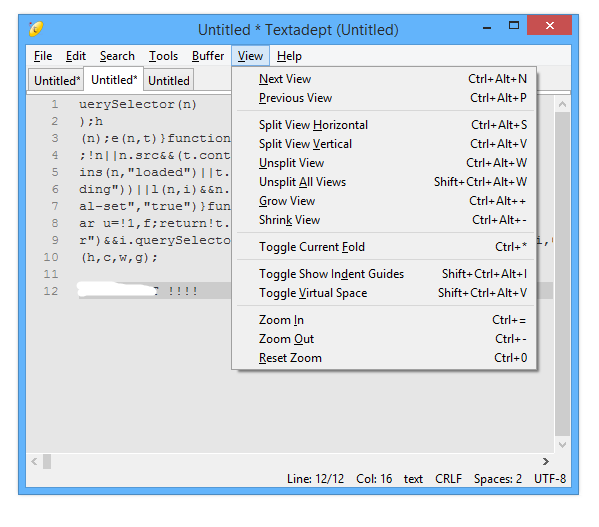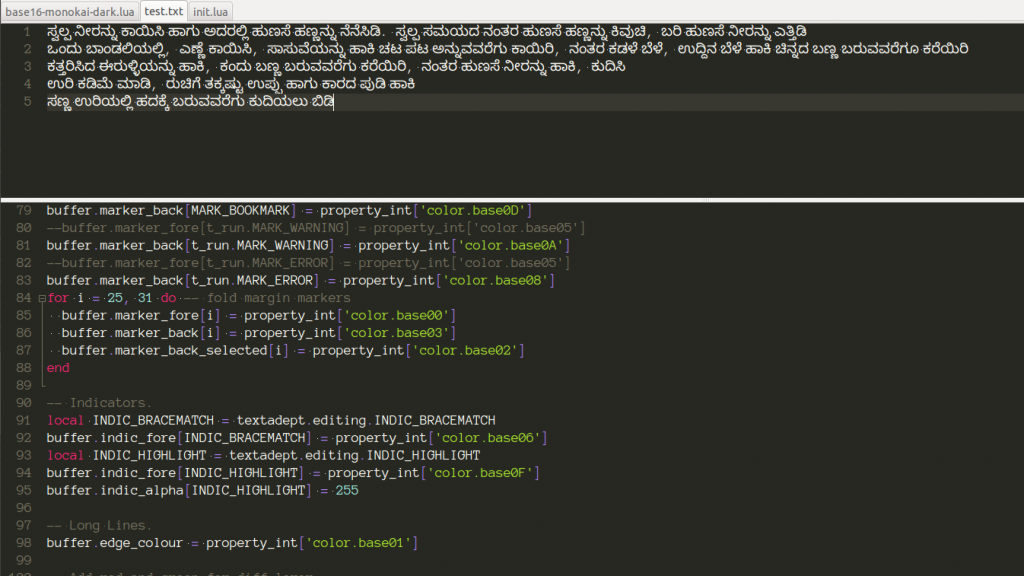


I run emacs in the terminal version, either through gnome terminal or more frequently in tty2 - I’ve set the colour scheme to solarized light.
#TEXTADEPT SAM INSTALL#
I also don’t use package.el, rather install my packages through guix. I don’t use a completion system like ivy. I am however using evil (and evil-collection), mu4e, magit, yasnippet, and projectile, organised with use-package. I’m using Emacs, configured, but mostly using stock stuff. Frequent sites are, amazon, my education portal, Wikipedia (I binge-read for fun), and my search engine of choice. I access Mastodon via the Pinafore web client.
#TEXTADEPT SAM ISO#
I downloaded the Lubuntu ISO using Transmission, monitored via transmission.el. I’m using Gnome, with pretty much everything disabled (plugin system, animations, etc). I’m on Lubuntu at the moment, using the GNU Guix package manager. I had a couple of issues with my setup recently, so this doesn’t reflect my fully normal workflow. I also have some autocomplete (kubeternetes, awsless etc etc) in my.sshuttle allows you to create a VPN connection from your machine to any remote server that you can connect to via ssh:.autossh for maintaining persistent tunnel.mosh as ssh wrapper for maintaining ssh connection even if we change the network.asdf as single version manager for most programming language:.ag the silver searcher, the fastest available grep alternative:.fzf tool for fuzzy searching, also I have configured this one to triggere on Ctrl+R:.Vim + plugins like vim-airline, fzf etc.Standard Notes (I highly recommend this one, If anyone knows native client?).Firefox (I use 4-5 instances of Firefox, I don’t use chrome).Slack, VS Code, PostMan, Spotify, Standard Notes, etc etcīut here is my list of softwares which I use on daily basis:

Well I try to avoid Electron based app as much as possible, but sadly popular tools are written in Electron only. Ubuntu requires you to add their ppa, which you can find from. To give fish a spin, just do a pacman/brew install fish. The few packages you may ever require, can be fetched using the “oh-my-fish” framework. It is different, but what you get is time-saved because tweaking and configuring fish as per your taste isn’t a hassle. To summarize: fish is definitely lighter, and faster than zsh or bash. The scripting language in fish may not be entirely POSIX compliant (one tradeoff you have to make for speed), but the scripts are neater and cleaner. You can set and unset env variables temporarily or permanently, depending on your use-case. no need to have everything in one long file.


 0 kommentar(er)
0 kommentar(er)
